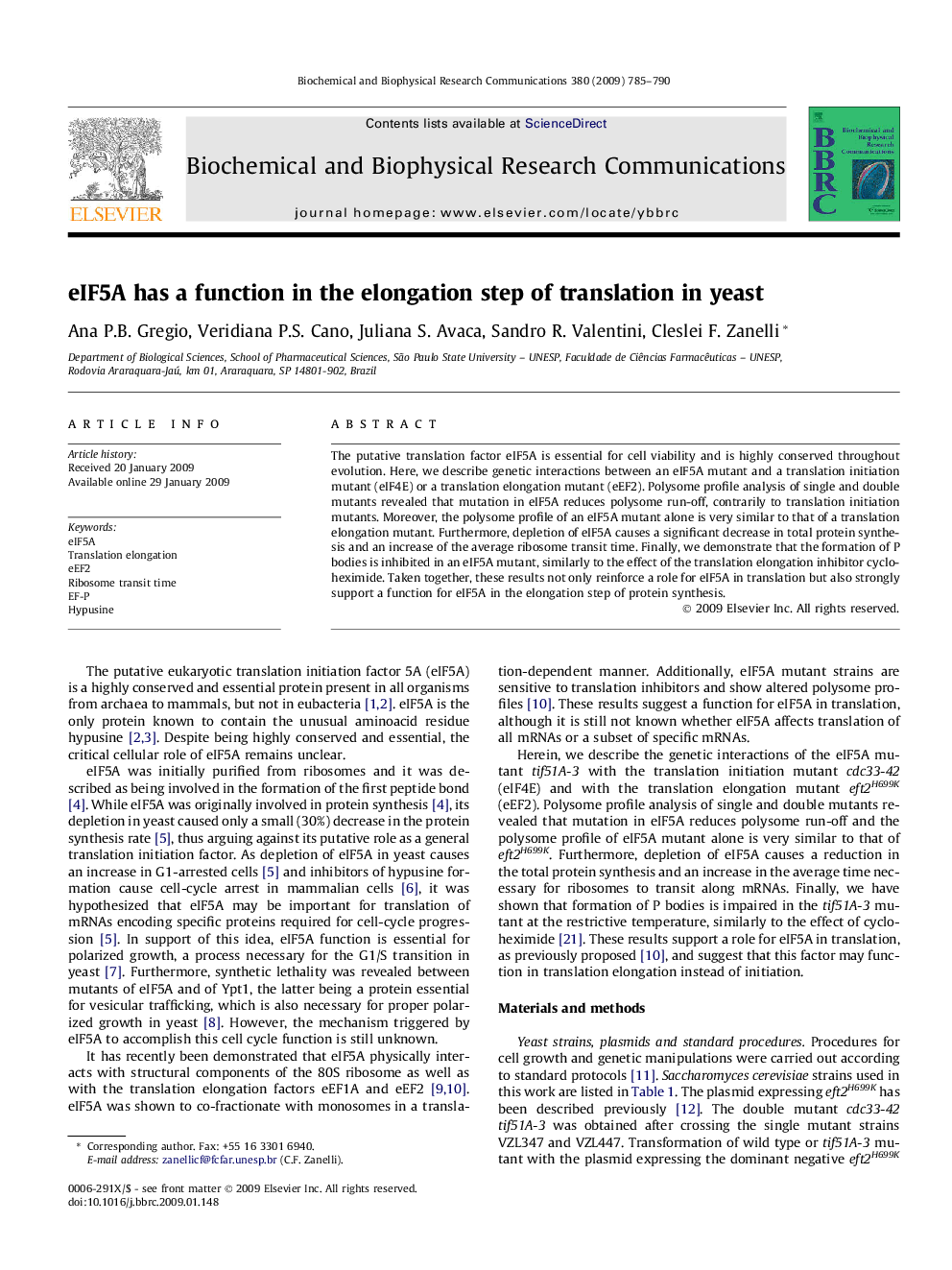| Article ID | Journal | Published Year | Pages | File Type |
|---|---|---|---|---|
| 8298264 | Biochemical and Biophysical Research Communications | 2009 | 6 Pages |
Abstract
The putative translation factor eIF5A is essential for cell viability and is highly conserved throughout evolution. Here, we describe genetic interactions between an eIF5A mutant and a translation initiation mutant (eIF4E) or a translation elongation mutant (eEF2). Polysome profile analysis of single and double mutants revealed that mutation in eIF5A reduces polysome run-off, contrarily to translation initiation mutants. Moreover, the polysome profile of an eIF5A mutant alone is very similar to that of a translation elongation mutant. Furthermore, depletion of eIF5A causes a significant decrease in total protein synthesis and an increase of the average ribosome transit time. Finally, we demonstrate that the formation of P bodies is inhibited in an eIF5A mutant, similarly to the effect of the translation elongation inhibitor cycloheximide. Taken together, these results not only reinforce a role for eIF5A in translation but also strongly support a function for eIF5A in the elongation step of protein synthesis.
Related Topics
Life Sciences
Biochemistry, Genetics and Molecular Biology
Biochemistry
Authors
Ana P.B. Gregio, Veridiana P.S. Cano, Juliana S. Avaca, Sandro R. Valentini, Cleslei F. Zanelli,
